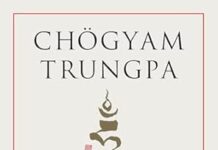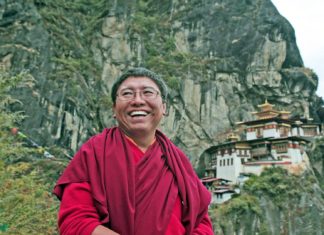
The Kangyur, or translated words of the Buddha, includes more than 500 sutras and 1,100 tantras.
The Tengyur contains more than 4,000 treatises and commentaries by Indian and Tibetan masters on philosophy, science, medicine, and other topics, including commentaries by Nagarjuna, Aryadeva, Dignaga, Dharmakirti, Asanga, and Vasubandhu.
100-YEAR VISION
To translate and make universally accessible the Kangyur and Tengyur.
25-YEAR GOAL
To translate and make accessible all of the Kangyur and many volumes of the Tengyur and Tibetan commentaries.
5-YEAR GOAL
To translate and publish a representative sample of the Kangyur, Tengyur, and establish the infrastructure and resources necessary to accomplish the long-term vision.
Campaign Director: North America
84000: Translating the Words of the Buddha (www.84000.co) is a non-profit global initiative to translate the entire collection of the Buddha’s Teachings and their commentaries from the Tibetan Collection into English and other languages (over 231,800 total pages). 84000 is a heritage project, offering the final translations free of charge in a digital format. 84000 has already brought together the heads of the Tibetan religious tradition as well as a vast group of prominent translators to achieve this goal. With the first translations underway, the organization is seeking a campaign director to lead fundraising efforts in North America, with particular focus on raising funds from individuals, organizations, foundations and government grants that are outside of the Buddhist networks.
The campaign director will work closely with and report to 84000’s operations committee on all development operations in the West; and will inspire, manage, and develop the Western volunteer fundraising team.
An ideal candidate will be a proven fundraising professional who is passionate about our mission, has substantial relevant experience, has a successful fundraising track record, well networked with heritage groups and web technology groups, and has excellent communications skills. The candidate is expected to work from home, and is not city dependent as long as he/she can access networks and funders in person as required.
Ensuring translation quality
Since the words of the Buddha are meant to inspire and bring about awakening to the truth, it is important that they are being translated in a way that conveys the original message, and are being rendered beautifully in the new language. A professional editorial system has thus been set up to ensure the quality of translations.
In general, translations are required to fulfill the criteria of being accurate to the original language (Tibetan), and being readable and elegant in the translated language (English). The editorial policy provides clear and detailed guidelines on the standards of translation.
The editorial standards are being developed and maintained by a dedicated team of editorial committee members. The 84000 editorial team is headed by Dr. John Canti, and supported by Dr. Tom Tillemans, Gavin Kilty, and Larry Mermelstein.
Dr. Tom Tillemans, the 84000 Project Editor, is the main person charged with the responsibility of bringing the translations in line with 84000’s stated requirements. Dr. Tillemans regularly communicates with the translators, and, where necessary, provides expert advice and feedback to translator teams. Continued
Call for Translation Grant Proposals
In 2010, 84000, the organization previously known as The Buddhist Literary Heritage Project, commissioned the translation of 49 texts from the Kangyur. Experienced Tibetan-English translators are invited to submit proposals by August 15, 2011. Applications are available from http://84000.co/translation/#tabs-0-1
Name change
Posted 7 March 2011
The organization previously known as The Buddhist Literary Heritage Project has changed its name. The 100-year project to translate the words of the Buddha is now called 84000: Translating the Words of the Buddha. They also have a new web address: 84000.co/. Here are two new addresses about the project from Chokyi Nyima Rinpoche and Dzongsar Khyentse Rinpoche.
Posted 1 February 2011
In March 2009, Dzongsar Khyentse Rinpoche, and the Khyentse Foundation hosted the Words of The Buddha‚ Translation Conference at Deer Park in Bir, India. The five-day conference, which was attended by more than 50 prominent translators from around the world, gave birth to a one-hundred-year plan to translate all of the Buddha’s teachings (the Kangyur), plus more than 4,000 treatises and commentaries by Indian and Tibetan masters (the Tengyur) from Tibetan into English and other western languages. This endeavor is being fostered by a newly formed organization known as The Buddhist Literary Heritage Project (Now known as 84000: Translating the Words of the Buddha).
Dzongsar Khyentse Rinpoche’s remarks during a Buddhist Literary Heritage Project event held in March 2010 in Singapore
There is a strong sense of urgency about this undertaking. There is a real risk that this ancient heritage could be lost within a generation. Less than 5% of the Kangyur and Tengyur have been translated into modern languages, and few people alive today hold the deep traditional learning necessary to interpret these texts accurately. As time goes on, the keys required for unlocking these texts—the sacred seeds of the Buddhadharma and an essential part of human heritage—could be lost.
Within the next three to five years, 84000 will become an independent organization with its own structure and board of directors. Until that time, Khyentse Foundation‚Â is committed to fostering its success. Work has begun on a five-year plan, which includes making 17,500 pages of new and existing translation accessible, establishing 84000 as a self-sustaining organization, and creating an effective system for the continual innovation of tools and resources for translators.
Some of the initial steps being taken include the completion of 11 pilot translations (currently undergoing the final stages of editing), the development of a translator training program, and establishing guidelines for translators.
Quotes
“…the survival of Tibetan Buddhism could depend on its translation into other languages, the Buddhist heritage and culture that permeated Tibetan life for more than a thousand years has all but disappeared in India, its country of origin.” -Dzongsar Khyentse Rinpoche
“… if you look at Tibet or China, only after many great scriptures and commentaries were translated did dharma really take root in their cultures.” -Dzongsar Khyentse Rinpoche
“… only a very small percentage of the main important Buddhist texts have been translated from their original languages. What do you think will be the impact of making more texts widely available through translation” -Dzogchen Ponlop Rinpoche
“As a follower of the Buddha-myself, my friends, and probably you also, we do care about our own particular small nest. We do care about our gurus, and our lineage, but it’s very strange that somehow we forget the real boss, the Buddha.” Rinpoche goes on to say, “The speech of the Buddha, what he taught, is actually readable. It’s tangible, it’s something that is within our reach, if you have the diligence, if you have the motivation. It is something that is actually alive, so to speak.” -Dzongsar Khyentse Rinpoche
We’re trying to establish a Western Buddhism lineage. But without the original words of the Buddha, how can we claim to be a Western Buddhist order? -Dzogchen Ponlop Rinpoche
There’s a sense of urgency, because the infrastructure is waning–the lamas, geshes, and khenpos who can understand some of these texts are disappearing. -Dzongsar Khyentse Rinpoche
















